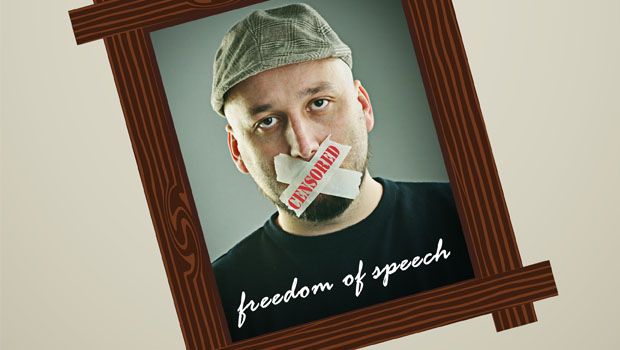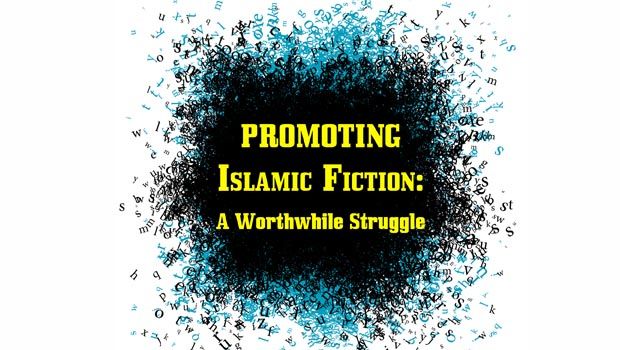All praises are for Allah, The Almighty, and may His peace and blessing be upon His true servant and final messenger, Muhammad, on his companions, and his household. Allah SWT says: “So direct your face toward the religion, inclining to truth, [according to] the natural disposition by which Allah has created people. No change should there be in the creation of Allah. That is the true faith, but most of the people do not know” (Quran 30:30).
According to the Islamic prescription for a harmonious social life, there is to be no superiority on account of class, color, ancestry, or wealth.
Allah SWT, the Creator of all that exists, has designed the universe and legislated laws that govern it so that all things function in a harmonious way. We, therefore, realize how the universe moves in perfect harmony by His laws, for if it did not then the entire universe would be in total chaos. There are billions of galaxies in the universe; and in our own Milky Way galaxy, it is estimated that there are 100 billion to ten trillion planets! Each one runs in its own orbit so they do not collide and bring about chaos and destruction; except on the Day of Judgment, then they will all collide. That brings the end of this life and ushers us into the Hereafter. So often Allah SWT, the Creator, draws our attention to the cohesiveness of the universe. In Surah Yaseen, Allah SWT mentions how the sun and the moon each “swim” in their own orbits. These two heavenly bodies, among trillions, are mentioned because we have knowledge about them and because the sun and moon have direct effect upon our lives here on earth.
Allah SWT informs: “It is not permitted to the sun to catch up to the moon, nor can the night outstrip the day. All of them swim along in their orbits” (Quran 36:40). Allah SWT also tells us how the heavenly bodies move with His command: “Indeed, your Lord is Allah, Who created the heavens and the earth in six days, and then He rose over the Throne. He brings the night as a cover over the day, which is in haste to follow it, and He created the sun, the moon, the stars — subject to His Command. Surely, His is the creation and the command. Blessed be Allah, the Lord of the worlds!” (Quran 7:54). Thus, there is complete obedience to His commands, and when there is complete obedience, there is complete harmony. This is His Divine Wisdom, evident in the creation, and Allah SWT, the Creator, knows best His creation. He says: “Should He not know – He that created? And He is the One that understands the finest mysteries [of His Creation and] is well-acquainted [with them]” (67:14). With His Divine wisdom and knowledge, Allah SWT has created man to be part of this universe. Like the command He has given to the heavens, He has bequeathed to mankind laws and regulations to follow and obey in order to have peace and harmony. He has blessed human beings with the capacity to acquire knowledge, to think and ponder, and with an intellect to distinguish right from wrong. Humanity and jinn are two known creations of Allah SWT that have been given the freedom of will and action.
Among the good qualities that we ought to inculcate in our lives and invite others to include humbleness, modesty, decency, truthfulness, honesty, politeness, tolerance, compassion, generosity, forgiveness, optimism, fairness, sincerity, self-restraint, etc.
Unfortunately, with intellect and freedom of choice, many individuals have turned away from Divine Guidance. So many have chosen the evil way, forsaking a moral and upstanding life. Professor Andrew Delbanco, in his insightful book “The Death of Satan: How Americans Have Lost the Sense of Evil,” writes: “…more and more our society, our nation is turning their backs on God and good morals.” Lionel Tiger writes in “The Manufacture of Evil”: “Once upon a time, evil was personified. Evil was Mephistopheles or the Devil. Almost flavorful, altogether identifiable, a clarified being from another world…” And what has happened now? Evil has faded into a sea of moral ambiguity.
The handiwork of Satan is manifest everywhere. He has his associates and agents among mankind who support the demise of morality and decency, affecting almost every aspect of human life. He incites them with confused and conflicting ideologies and notions of every sort, opening the door to criminal, depraved, and unjust behaviors. Voltaire once said: “Certainly anyone who has the power to make you believe absurdities has the power to make you commit injustices.” He goes on to say: “If you do not use the intelligence with which God endowed your mind to resist believing impossibilities, you will not be able to use the sense of injustice which God planted in your heart to resist a command to do evil.” Thus, Satan has sown the seeds of conflict throughout human affairs, and God’s laws have been violated, with nations at war with each other, corrupt government officials, families plagued by divorce and parent-child problems, high rates of murder and other crimes, gangs terrorizing communities, media promoting and sensationalizing violence, alarming rates of substance abuse, widespread lewdness and promiscuity, and never ending displays of ego gratification through celebrity worship and lust for power and wealth. And the list goes on…
By and large we have allowed these things to happen. We have not joined together as we should have, to stop our society from losing its moral high ground. There is so much hatred, bigotry, and more recently, Islamophobia, that adds fuel to fire. But with all this burning hatred and intolerance, it is a unique opportunity for Muslims to call people back to the core values of morality and decency. Like the prophets throughout history, and particularly the five Messengers renowned for their strong will and determination – Prophet Nuh, Prophet Ibrahim, Prophet Musa, Prophet ‘Eesa, and Prophet Muhammad (peace and blessings of Allah be upon all of them). They have all gone through that inferno of hatred and intolerance from their own people. But they never gave up. In fact, they took every opportunity to bring about good in their respective societies. When the Quraish discouraged people from entering Islam, Rasoolullah (pbuh) would use the opportunity to explain to them the beliefs and principles of Islam and how it brings about human salvation. Allah SWT has indeed guided mankind in every aspect of life. By way of example let us examine a few.
Spiritual Life
Allah SWT has informed us of the true purpose of life. It is to be His true servant through worship and obedience to Him alone. The Quran says: “And I [Allah] created not the jinns and humans except that they should worship Me [alone]” (Quran 51:56). In order to genuinely worship God, one must have unshakable belief in His existence. Coupled with strong beliefs, acts of worship bring about decent moral behavior. Take prayer for example. If done with sincerity, it protects us from committing sins or engaging in wrongful deeds. ”…And perform the prayer. Verily, the prayer prevents immorality and wrongdoing…” (Quran 29:45). As to other aspects of worship, fasting helps a person develop self-restraint and the capacity to delay gratification; charity or zakaah inculcates the values of generosity and compassion and counters greed and miserliness; and the pilgrimage humbles us and helps us to enlarge our perspective and feel a solidarity with the vast human family, as we see the assembly of pilgrims coming from all over the world, each individual hoping for the mercy and forgiveness of Allah SWT.
Intellectual Life
The very first revelation given to Prophet Muhammad (pbuh) is a command to illuminate our minds with knowledge, for it is knowledge that dispels the darkness of ignorance and evil. Allah SWT commands, “Read! In the Name of your Lord Who has created — created man from a clinging substance. Read! And your Lord is the Most Generous, Who has taught by the pen, taught man that which he knew not” (Quran 96:1-5). Knowledge is the cure for ignorance. In fact, it is only through knowledge of the religion, true knowledge of Allah SWT, and knowledge of self that human beings can be saved from misery, in this life and in the Hereafter. We are told in the Quran, “Say: Are those who know equal to those who know not? It is only men of understanding who will take heed” (Quran 39:9).
Personal Life
Regarding our personal lives, Islam provides guidance as to cleanliness of the body, our clothes, our surroundings, and places of worship. Cleanliness, as Rasoolullah (pbuh) puts it, is half of faith. Islam also guides human beings as to what to consume, with most food available from earth’s bounty being permissible and good, and a few things being prohibited, such as pork. We are further prohibited from wasting food as that indicates ungratefulness for the sustenance provided by Allah SWT. The Quran says, “…do not squander senselessly. Verily, the squanderers are, indeed, of the ilk of the devils, as Satan is ever ungrateful to his Lord” (17:26-27). Sadly, surveys shows that every year, from the more than 350 billion pounds of edible food available for human consumption in the United States, nearly 100 billion pounds – including fresh vegetables, fruits, milk, and grain products – are thrown away by retailers, restaurants, and consumers. This waste alone adds up to $48 billion.
Social and Political Life
Allah’s prescription for a harmonious social life includes equality, justice, helping those in need, and each individual developing a benevolent character. Imam Al-Ghazaali named some of the qualities that the Prophet (pbuh) called for, such as doing good deeds; submitting to Allah’s will; bestowing favors on others; feeding the needy; extending greetings; visiting the sick; escorting the bier of a Muslim; protecting one’s neighbor whether Muslim or not; honoring the aged; making peace between people; and being easygoing.
Further, according to the Islamic prescription for a harmonious social life, there is to be no superiority on account of class, color, ancestry, or wealth. One of the most shameful of social evils is the feeling of superiority over others. This was Iblees’s downfall when he told Allah SWT that he would not prostrate to Adam because Allah had created him from fire and Adam from clay, and in his thinking, this rendered him better than Adam. How many wars have been fought because one nation felt superior to another? Allah SWT informs us that our differences are only by His command and wisdom. It is for us to learn about one another, not to despise one another. He says, “O mankind, indeed We have created you from male and female and made you peoples and tribes that you may know one another. Indeed, the most noble of you in the sight of Allah is the most righteous of you. Indeed, Allah is Knowing and Acquainted” (Quran 49:13).
We are reminded of the sermon Rasoolullah (pbuh) gave at the Farewell Pilgrimage in which he said: “All mankind is from Adam and Eve; an Arab has no superiority over a non-Arab nor a non-Arab any superiority over an Arab; also a white has no superiority over a black, nor a black any superiority over a white — except by piety and good action. Learn that every Muslim is a brother to every Muslim and that the Muslims constitute one brotherhood. Nothing shall be legitimate to a Muslim, which belongs to a fellow Muslim unless it was given freely and willingly. Do not therefore, do injustice to yourselves.” SubhanAllah! Compare that wisdom to our situation today! There is so much discrimination and discord based on race, ethnicity, family status, and wealth, even among the Muslim ummah. How do we expect success and harmony when we ignore Allah SWT’s Divine Command?
On a global level, millions have perished in the two world wars, in Mao Tse Tung’s China, in Stalinist Russia, in the Vietnam War, as just a few examples. The carnage continues into this 21st century with regional wars, sectarian conflicts, murders, domestic violence and so on. Man has disregarded God’s laws and has ended up in never-ending conflict and destruction. Rasoolullah (pbuh) predicted that a time would come when there would be large scale killing.
Moral Life
Islam provides injunctions and principles, in a broad-based and precise way, for a harmonious life, built on a foundation of enjoining what is right and shunning and preventing what is evil. An individual’s moral development brings growing discernment as to what is right and what is wrong, and dedication to ethical and refined living. Regarding one of the main objects for which the Prophets and Messengers were sent, Prophet Muhammad has said: “I have been sent by God to teach moral virtues and to evolve them to highest perfection.” He also mentions: “On the Day of Recompense, nearest to me will be the one who displays in his daily life the best of manners.”
Among the things we ought to reject are arrogance, vanity, immodesty, lewdness, lying, cheating, foul language, hatred, envy, backbiting, slandering, stinginess, vindictiveness, pessimism, unfairness, deceptiveness, self-indulgence, and impulsiveness.
And among the good qualities that we ought to inculcate in our lives and invite others to include humbleness, modesty, decency, truthfulness, honesty, politeness, tolerance, compassion, generosity, forgiveness, optimism, fairness, sincerity, and self-restraint.
Imam Ibn Al-Qayyim wrote in “Madarij Al-Salikeen”: “Religion is all moral character, and whoever bests you in moral character will best you in religion.” In conclusion, if human beings follow the laws of Allah they will succeed and have peace and harmony. But if they ignore God’s guidance they will face severe consequences. Not only will they spread misery in this world, but each one shall be brought before the Creator on the Day of Judgment to answer for his or her deeds. Islam changed the Arabian society from the depths of darkness to the most accomplished society mankind had ever witnessed. The Muslim ummah is meant to be an example for humanity. In this regard, Imaam Malik (RA) said: “The latter part of this ummah will not be rectified except by that which rectified its earlier part.”





